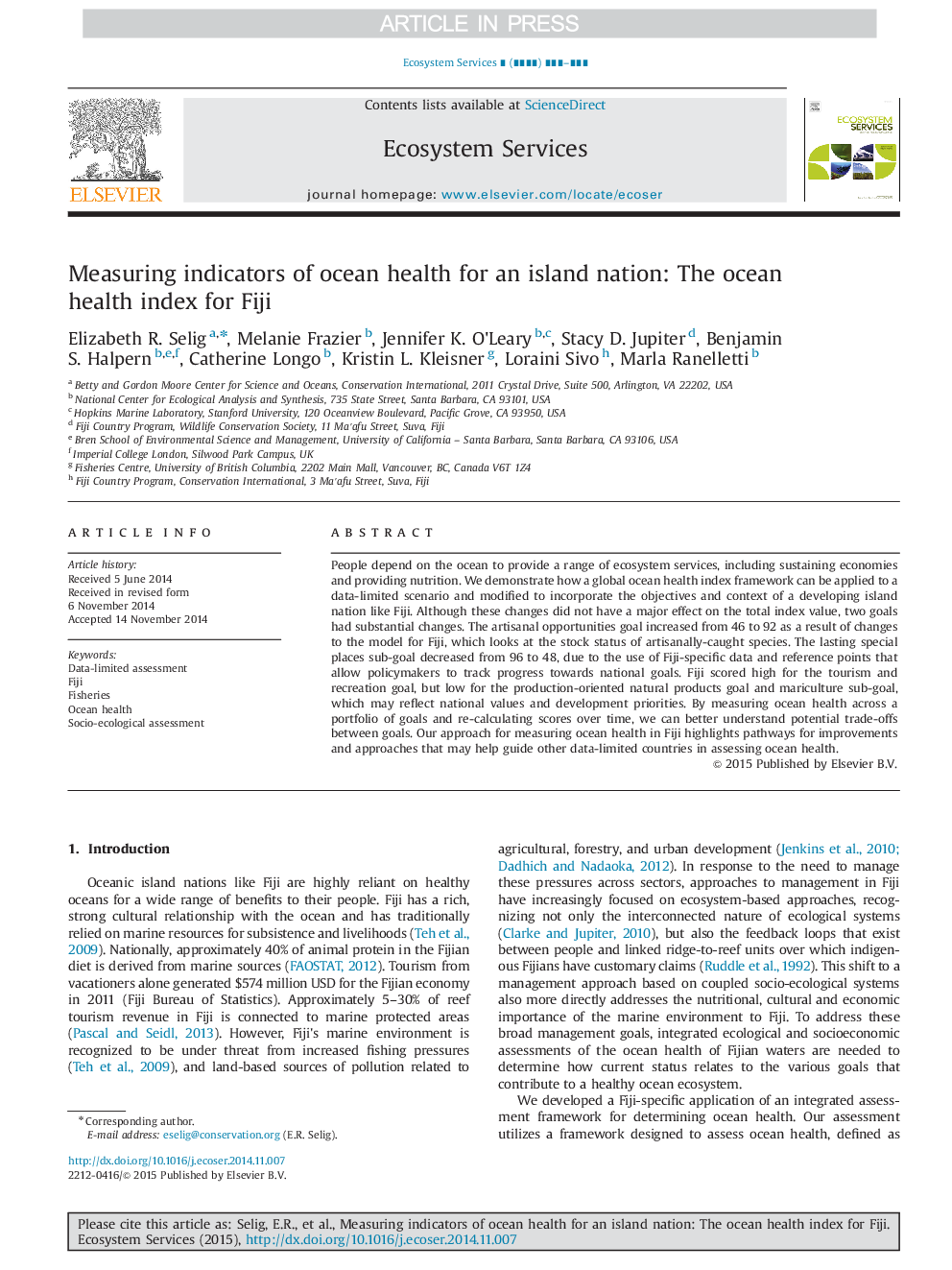| Article ID | Journal | Published Year | Pages | File Type |
|---|---|---|---|---|
| 6556702 | Ecosystem Services | 2015 | 10 Pages |
Abstract
People depend on the ocean to provide a range of ecosystem services, including sustaining economies and providing nutrition. We demonstrate how a global ocean health index framework can be applied to a data-limited scenario and modified to incorporate the objectives and context of a developing island nation like Fiji. Although these changes did not have a major effect on the total index value, two goals had substantial changes. The artisanal opportunities goal increased from 46 to 92 as a result of changes to the model for Fiji, which looks at the stock status of artisanally-caught species. The lasting special places sub-goal decreased from 96 to 48, due to the use of Fiji-specific data and reference points that allow policymakers to track progress towards national goals. Fiji scored high for the tourism and recreation goal, but low for the production-oriented natural products goal and mariculture sub-goal, which may reflect national values and development priorities. By measuring ocean health across a portfolio of goals and re-calculating scores over time, we can better understand potential trade-offs between goals. Our approach for measuring ocean health in Fiji highlights pathways for improvements and approaches that may help guide other data-limited countries in assessing ocean health.
Keywords
Related Topics
Life Sciences
Agricultural and Biological Sciences
Agricultural and Biological Sciences (General)
Authors
Elizabeth R. Selig, Melanie Frazier, Jennifer K. O'Leary, Stacy D. Jupiter, Benjamin S. Halpern, Catherine Longo, Kristin L. Kleisner, Loraini Sivo, Marla Ranelletti,
